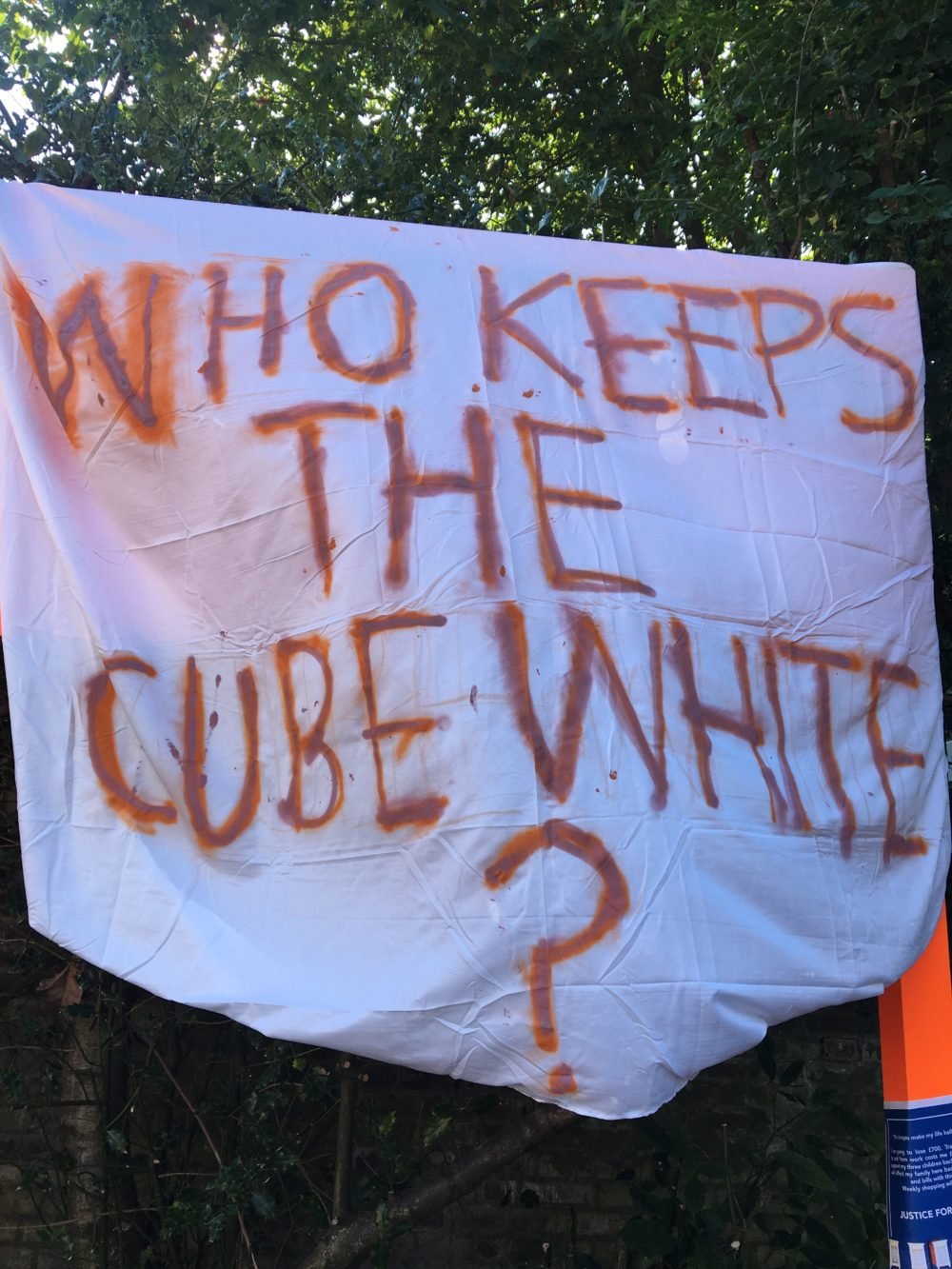
Guests at the private opening of Goldsmiths University’s swanky new $5 million contemporary art center yesterday were greeted by a campaign group, noisily demonstrating against working conditions of the university’s cleaning staff at the London institution. The “Justice for Cleaners” campaign is targeting a recent scheduling restructure that workers say has reduced their hours and increased their workloads to “indescribable” levels.
A larger protest is expected to take place tonight at the center’s grand opening. So far 227 people have pledged to attend on Facebook.
Dozens of cleaners first expressed concern about the proposed restructuring earlier this year directly to senior members of university management. In July, more than 285 staffers signed a “Justice for Cleaners” petition demanding improved working conditions and for the university to bring staffing in house, rather than outsourcing it. (Goldsmiths currently employs the multinational staffing agency ISS, which holds contracts at several other universities in the UK.)
The restructure went ahead anyway in August, with workers’ usual six-hour night shifts or three-hour morning shifts replaced with one new four-hour shift beginning at dinner time. As a result, more than 20 staffers lost their jobs due to secondary employment commitments, while those who’ve adopted the new schedule have given testimonies about the unacceptable conditions it has engendered. Many complain of feeling unsafe now that they must commute home at 11:30pm, when public transit is limited and crime rates higher. “I am not able to clean in four hours,” one wrote. “When I leave work I don’t feel safe.”
The new center is opening with a solo exhibition by the New York-based artist Mika Rottenberg, whose work often addresses the subject of hidden—and particularly female—labor. On Monday, Rottenberg issued a statement of support and solidarity with the campaign.
“I respect the decision to use the opening night of the new Goldsmiths CCA, and my exhibition, as a way to publicly promote this issue,” she said, adding that she hopes the demonstration will pressure the university to begin addressing its cleaning-staff issues internally. “I hope that the protest will help make visible the hidden labor and fragments of vital energy and exploitation that are embedded in everything we consume and produce.”
Rottenberg said she chose not to cancel her exhibition out of respect for the curatorial and installation teams. She hopes it will “help to provide more visibility for the campaign as well as the debate around the connection between art and activism, ethics and aesthetics, and the hypocrisies and contradictions that are part of our contemporary reality.” Rottenberg will appear in conversation with Goldsmiths CCA director Sarah McCrory on Saturday.
Campaigners for “Justice For Cleaners” protest at the press preview of Goldsmiths’ new contemporary art center. Photo by Javier Pes.
A spokesperson for Goldsmiths said that the university “respects the right to peaceful protest and acknowledges the concerns expressed by some students and staff about the terms and conditions of cleaning staff.” They added that the university is currently in talks with cleaners and their trade union, UNISON. “Our cleaning contracts are due for renewal this autumn and one of the options we’re looking at is taking this important work in-house,” the spokesperson said, adding that they will conduct a cost-benefit analysis of the proposed changes.
A spokesperson for Justice For Cleaners told artnet News that the outsourced staffing company justified the restructure by arguing that the cleaning service had fallen below standards. “We fail to see the logic in addressing a perceived fall in the quality of cleaning services by reducing the time and labor power spent on cleaning and scheduling cleaning to occur when buildings are still in use,” the spokesperson said. “It is clear to us that spending less money on cleaning at the expense of treating staff fairly is part of the larger neoliberal agenda which runs universities as businesses—something many in the sector have long been resisting.”
If the university does not respond to the campaign’s demands, advocates say they will escalate their protests once the school term commences and “the highly politicized student body of Goldsmiths returns to campus.”